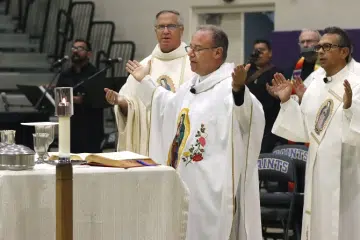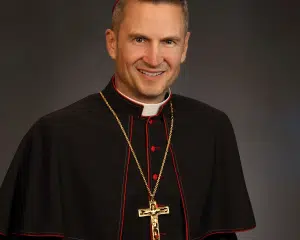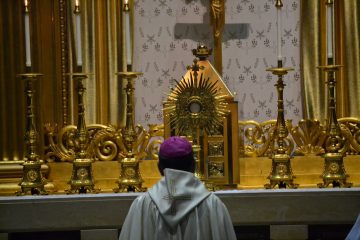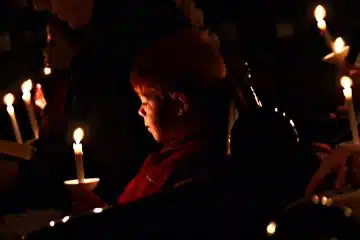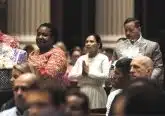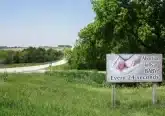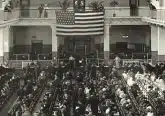Voting with our Faith
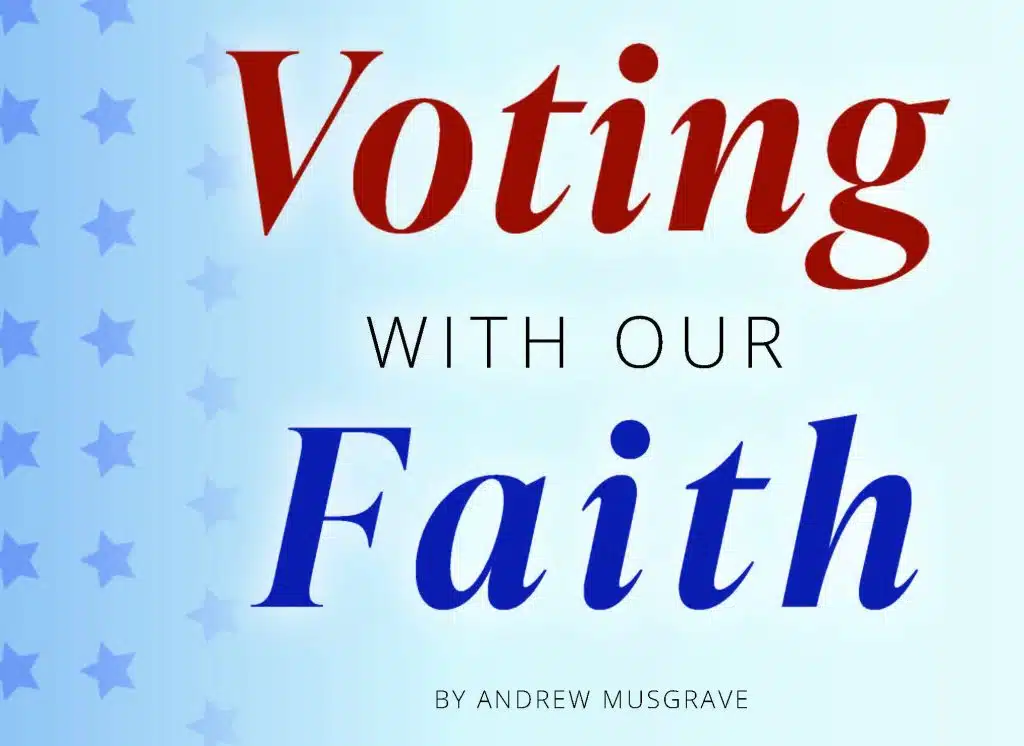
In our current political climate, it is nearly impossible to avoid the vitriol and negativity that constantly bombard us. It’s also extremely difficult (if not impossible) to identify candidates who fully adhere to our values: Gospel values that respect all life and care, especially for the forgotten and marginalized. It might seem easier, then, to just avoid politics altogether. However, as with so many challenges we face in our lives, we cannot just ignore or disengage; we must follow the example of Christ and meet our difficulties head on.
The U.S. bishops’ document, Forming Consciences for Faithful Citizenship (FCFC), reminds us of two key ideas: our faith compels us to be engaged in our community, and our faith must be our primary guide when we engage. We cannot blindly follow a political party or candidate; our faith alone must be our guiding light. First released in 1976, the bishops cite the Catechism of the Catholic Church (CCC) to explain why they wrote FCFC: It is necessary that all participate, each according to his position and role, in promoting the common good (CCC, 1913). Thankfully, FCFC doesn’t just send us out with an idea and good wishes; it gives us tools for the job, three of which are noted here.
First, it reminds us that we have a lifelong obligation to develop well-formed consciences, and there are multiple appropriate sources to do so: studying scripture and Church teaching, examining facts and background information (from reputable, trustworthy sources), listening to and engaging with experts and prayerful reflection (FCFC 17-19).
Second, it reminds us to always, above everything else, avoid evil and do good. Aided by prudence and a well- formed conscience, we are to make practical judgments regarding good and evil choices in the political arena. There are some acts we must never do, as individuals or as a society, because they are always incompatible with love of God and neighbor. These are called “intrinsically evil” actions: abortion and euthanasia, of course, and we must also include genocide, torture, racism and the abuse of workers. These are all issues that assault the dignity and sanctity of human life (FCFC, 21-23).
Third, FCFC reminds us that we have a wealth of Catholic Social Doctrine, also known as Catholic Social Teaching (CST), on which we can rely for both formation of our consciences and how to discern between good and evil (because not all issues are simply right or wrong; most are somewhere in the middle). At the heart of CST is the life and dignity of all people. Every person, no matter what, is created in the image and likeness of God and thus has innate dignity that can never be taken away.
From this awareness flows the belief that we all have rights and responsibilities. Not only do we deserve to have our rights honored, we also have the responsibility to ensure others have their rights honored as well. This leads into the themes of family, community and participation.
As we work to protect life and rights, we do so best when we work together to both care for the family and build community. And when we build community, we must take special care of those who are poor and vulnerable—just like Jesus did, and we must also protect the dignity of work, for it is by work that we become co-builders with God.
When we broaden these efforts beyond our immediate surroundings, we stand in solidarity with our brothers and sisters around the world. Called to care for all of God’s creation, this further includes (after humanity as a priority) the soil, water and air and all living things residing on this planet that God so graciously gave to us to tend and care for.
You might be thinking this is all great information, but how do I access these resources for myself and my faith community?
The Archdiocese of Cincinnati has the answer: iVoteCatholic.org. This website provides everything you need to gain a fuller understanding of the Church’s commitment to a consistent ethic of life, and its resources can be used in multiple settings. There are discussion questions and prayers to use at home or in small groups, as well as lessons to use with children of all ages. You’ll also find a myriad of additional resources—videos, posters, websites, quotes, etc.—and language from the bishops further explaining how and why we must follow our faith as we engage in the political process and our broader community.
Parishes can find resources for catechists, liturgists, communication directors and preachers. There’s even a unique page for parish leaders that includes a ready-to- use plan for parishes to implement.
It can be hard to remain true to our faith in the difficult political times in which we find ourselves. Thankfully, our Church and our faith give us the strength and resources to stand strong.
This article appeared in the October 2024 edition of The Catholic Telegraph Magazine. For your complimentary subscription, click here.


